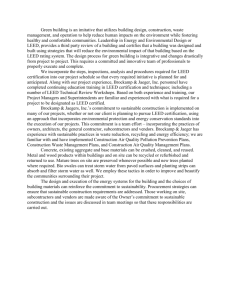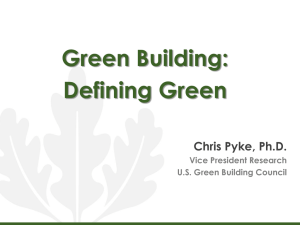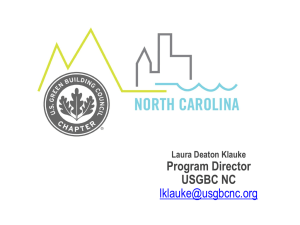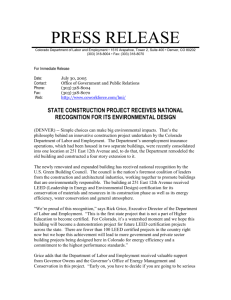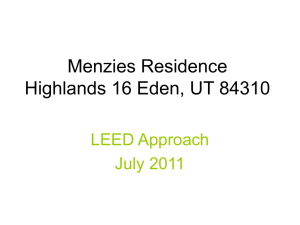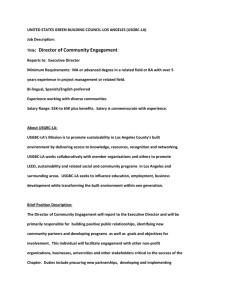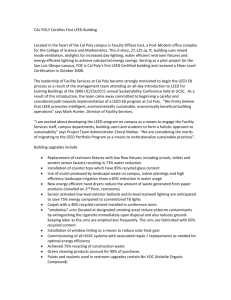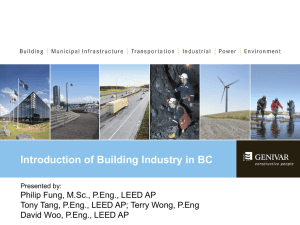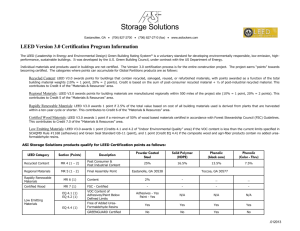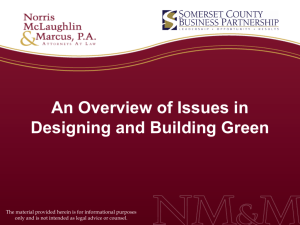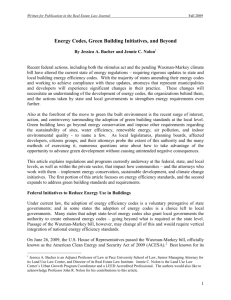Green Building Policy
advertisement
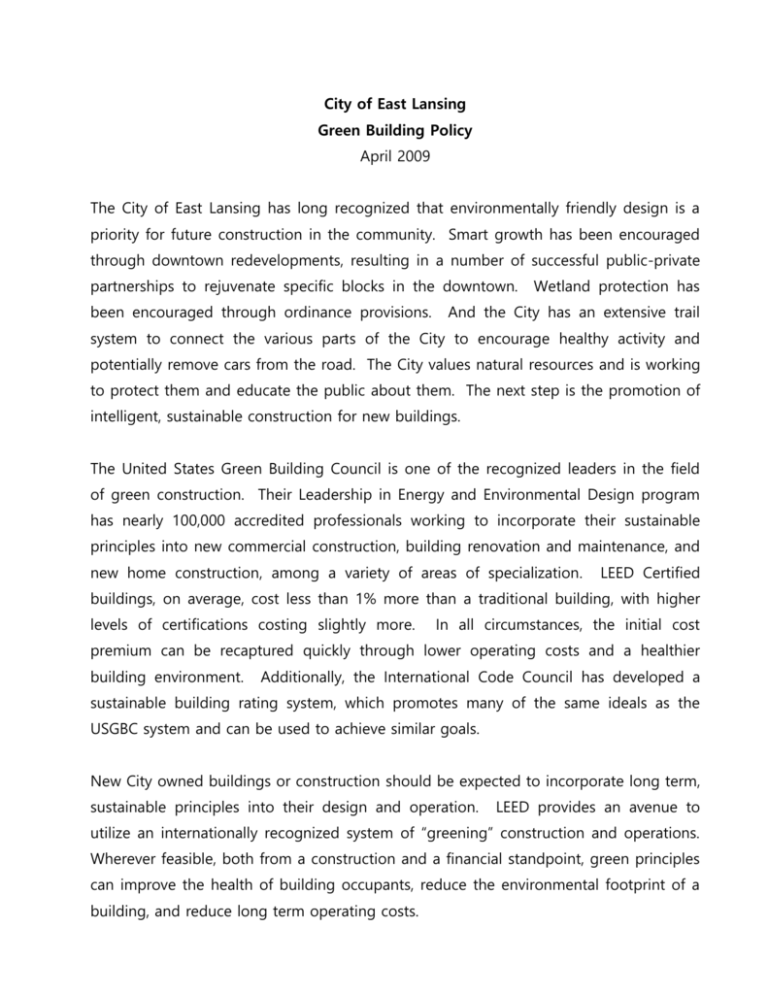
City of East Lansing Green Building Policy April 2009 The City of East Lansing has long recognized that environmentally friendly design is a priority for future construction in the community. Smart growth has been encouraged through downtown redevelopments, resulting in a number of successful public-private partnerships to rejuvenate specific blocks in the downtown. been encouraged through ordinance provisions. Wetland protection has And the City has an extensive trail system to connect the various parts of the City to encourage healthy activity and potentially remove cars from the road. The City values natural resources and is working to protect them and educate the public about them. The next step is the promotion of intelligent, sustainable construction for new buildings. The United States Green Building Council is one of the recognized leaders in the field of green construction. Their Leadership in Energy and Environmental Design program has nearly 100,000 accredited professionals working to incorporate their sustainable principles into new commercial construction, building renovation and maintenance, and new home construction, among a variety of areas of specialization. LEED Certified buildings, on average, cost less than 1% more than a traditional building, with higher levels of certifications costing slightly more. In all circumstances, the initial cost premium can be recaptured quickly through lower operating costs and a healthier building environment. Additionally, the International Code Council has developed a sustainable building rating system, which promotes many of the same ideals as the USGBC system and can be used to achieve similar goals. New City owned buildings or construction should be expected to incorporate long term, sustainable principles into their design and operation. LEED provides an avenue to utilize an internationally recognized system of “greening” construction and operations. Wherever feasible, both from a construction and a financial standpoint, green principles can improve the health of building occupants, reduce the environmental footprint of a building, and reduce long term operating costs. Implementing green construction through public-private partnerships is also a high priority. By planning for green construction at the outset, the City can leverage various incentives to promote more responsible construction, while still providing strong incentives for the development community to bring further redevelopment to the downtown and other targeted areas of the City. The City of East Lansing shall incorporate green building principles into the design, construction and operation of all new municipal construction and City-funded projects. This shall be accomplished by: Municipal Development 1) Requiring new municipal construction over 5,000 square feet to attain U.S Green Building Council’s (USGBC) Leadership in Energy and Environmental Design (LEED) Certification at a minimum “Silver” level. 2) Requiring renovations to municipal facilities or municipal construction projects to incorporate LEED building and/or low impact design practices to the greatest extent practicable. Private Development 1) Requiring new private construction for any single building which receives municipal incentives up to 15% of the total project cost, to attain LEED for New Construction and Major Renovations (LEED – NC) at a minimum “Certified” level. 2) Requiring private development projects which receive over 15% municipal incentives to attain the following LEED certification levels: a. For projects with one building; attain minimum LEED - NC or ICC – 700 “Silver” certification b. For projects with multiple buildings, either; i. Attain at least “Silver” certification under the LEED for Neighborhood Development (LEED – ND) rating system and obtain at least 1 point under Green Infrastructure & Buildings (GIB) Credit 1 in the LEED – ND rating system – or – ; ii. Attain at least “Silver” certification for each individual building in the project under either the LEED – NC or ICC – 700 rating system 3) Requiring private building renovations which receive municipal incentives to attain LEED –NC at a minimum “Certified” level. For the purposes of this policy, incentives shall include tax increment financing funds, brownfield redevelopment funds, community development block grant funds, parking revenue bonds, or other similar financing mechanisms. Furthermore, the City shall encourage all new private sector development in the City of East Lansing to incorporate LEED, or similar green building practices such as ENERGY Star certification, and low impact design elements to the maximum extent practicable. Future City ordinances, including those for storm water design, will work to incorporate low impact design and encourage smart growth and development. This policy is expected to promote City-wide environmental sustainability to improve our local environment and reduce the City’s contribution to global greenhouse gas emissions. In addition, it will yield long-term financial savings to taxpayers due to reduced life-cycle costs and improved building performance. All of this will occur while not substantially increasing the cost of construction to the City or any private developers. This policy shall become effective for site plans submitted after April 30, 2009.

